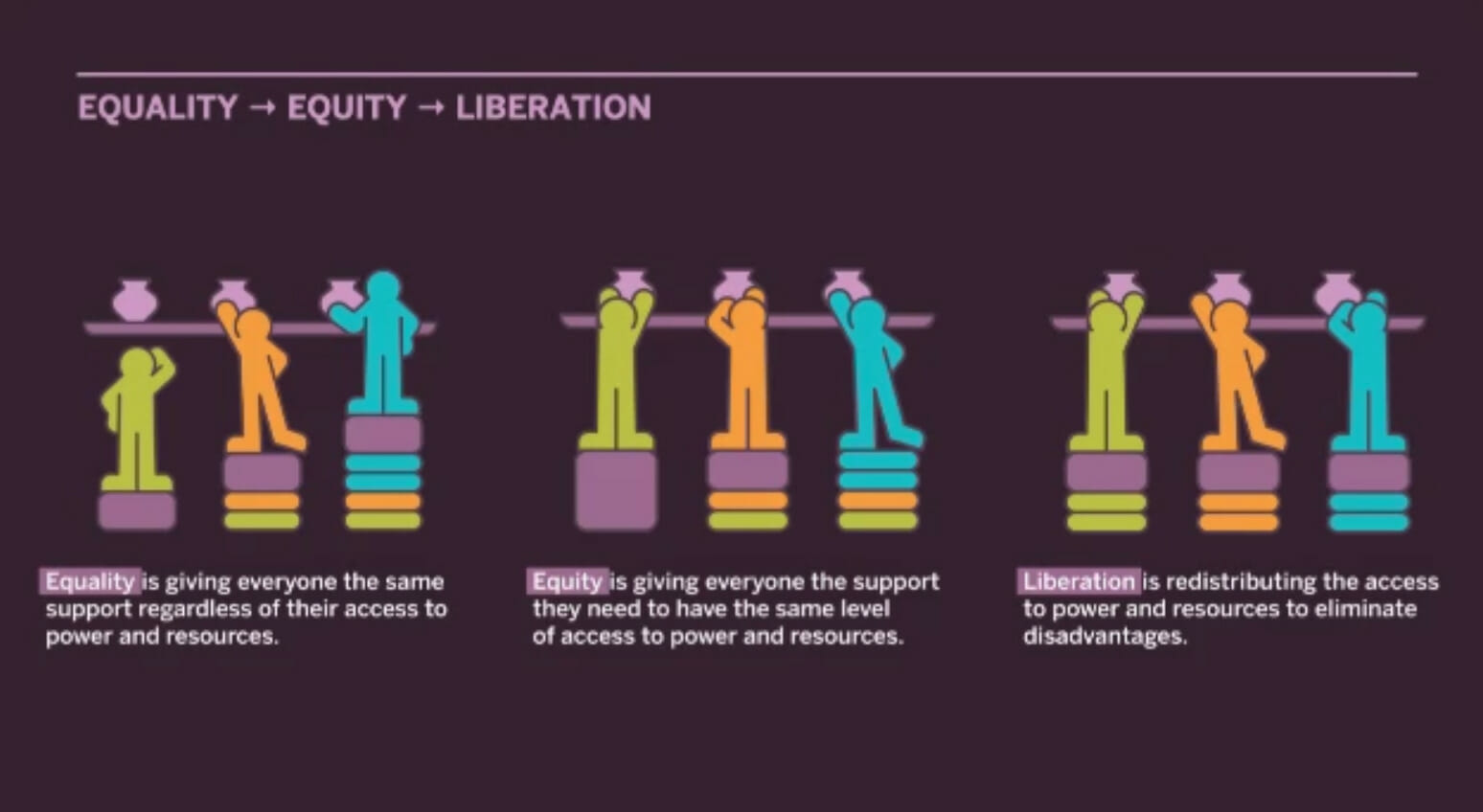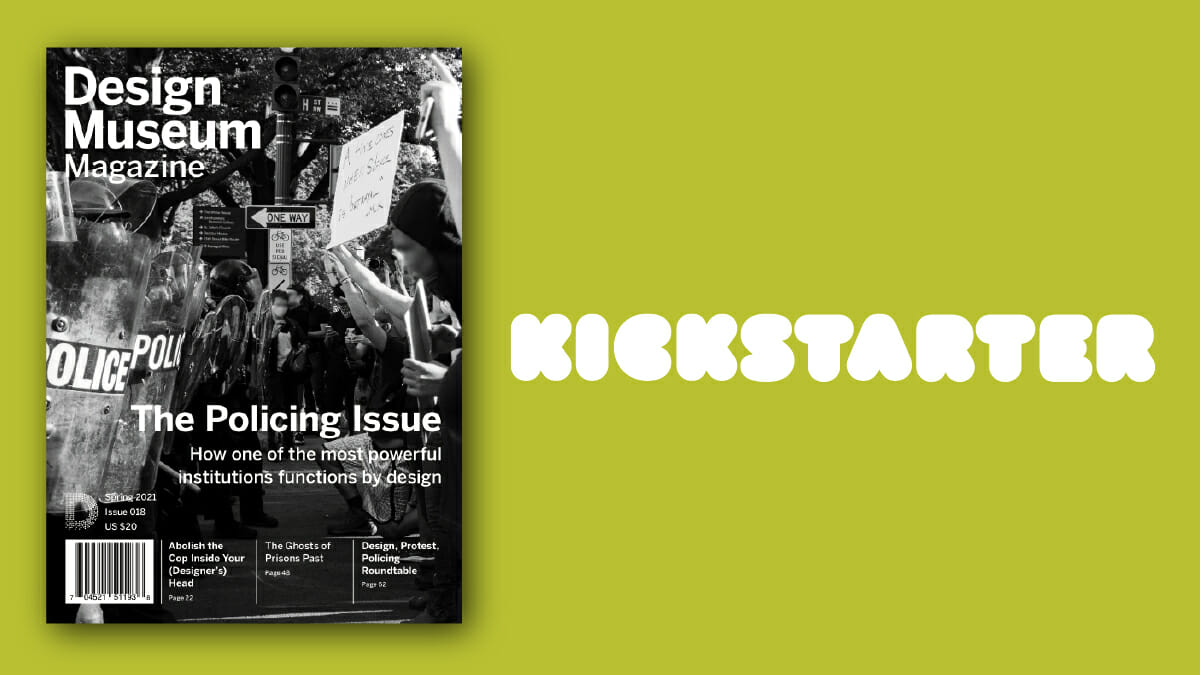Annual Meeting Recap
Catch up (or relive!) what you missed at the Annual Meeting!
FOLLOW-UP LINKS
ONLINE COMMUNITY
Join our online community on Discord!
By Sara Magalio
On January 26, the CoDesign Collaborative community gathered online for our Annual Meeting. Each year, we open up one of our Board of Directors meetings to the greater DME community, so that we can share details of what we have accomplished in the past year, and plans that we have in the year ahead for programming including exhibitions, publications, education programs, special events, and more. The CoDesign Collaborative team also awarded this year’s Distinguished Service Medals to two individuals who made a significant impact on the museum’s work in 2020, and we shared numerous ways that others in the DME community can get involved in our upcoming work.
At the beginning of the meeting, Leila Mitchell, the new Vice Chair of the CoDesign Collaborative Board of Directors, shared some of the notable milestones that the museum achieved in 2020. George White, the new Board Chair, also shared a breakdown of the museum’s finances over the last year. For a comprehensive look at our work in 2020, please visit our Year in Review blog post.
One notable development for 2021 is the creation of our new online collaborator community on Discord. Fostering an engaged community is important to us, and design is collaborative, so we want to work together to bring great, impactful, accessible design thought leadership to the world. Through this Discord channel, members of the CoDesign Collaborative community will be able to share their ideas and collaborate with others on potential programming such as events, exhibitions, magazine articles, and podcast topics.
Discord is a free communication tool where you can talk over voice, video, and text. It is essentially a place where we can all collaborate and share ideas online. Join DME’s Discord using the link in the image above.
Next, Diana Navarrete-Rackauckas, CoDesign Collaborative’s Director of Learning and Interpretation, shared more information on the museum’s work to promote diversity, equity, and inclusion in the design community and in the museum’s inner workings. Diana shared that the museum has just published a new Diversity, Equity, and Inclusion statement, which can be found on our website. The statement shares our goals as a community to promote DEI in our everyday work, and that the museum will create one, two, and three year check-ins to track progress, while asking DME community members to hold our staff accountable to our dictated goals.
Diana showed this graphic, created by DME designers, to attendees. The graphic illustrates the key differences between the terms equality, equity, and liberation.
Diana also revealed that as a part of our programming to promote diversity, equity, and inclusion in design fields, she will be leading a three-month, virtual training program for design professionals called Diversity in Action, which will allow participants to learn crucial information relating to promoting equity in the workplace and beyond, while the program’s multi-month scheduling will allow attendees to build habits in their personal and professional lives that make promoting DEI second nature. Diana will be hosting a preview of the workshop on Feb. 26 for those interested in the Diversity in Action program, and more information can be found on the program’s page linked above.
Journee Harris, who is the Program Coordinator for CoDesign Collaborative’s groundbreaking exhibition We Design, then shared the work that has been done on the exhibition in the last year, and what is in store for We Design in 2021. In 2020, We Design, which was originally an in-person exhibition celebrating designers from underrepresented communities, was transitioned to an online program that now includes both the individuals who were featured in the original exhibition and some new designers for the DME community to learn more about. Journee and team have also created a whole new way to interact with the exhibition, the We Design Exhibition Conversation Cards, which are meant to be used alone or with friends. This deck includes stories from creatives in a variety of design industries, along with statistics and topics of discussion around diversity and equity in design.
This image shows the new We Design Exhibition Conversation Cards.
Lastly, Journee announced that the CoDesign Collaborative team is currently in the process of transitioning the We Design exhibition into a book. This book will be similar to our previous publications, such as Bespoke Bodies: The Design & Craft of Prosthetics, our all new book on the evolution of prosthetic design, which is on sale now. However, this book will be expanding on some of the themes within our We Design exhibition, namely the relationship between design and intersectionality. Journee shared that DME community members who wish to nominate designers to be included in We Design in its many capacities can do so here.
Jennifer Jackson, CoDesign Collaborative’s Executive Associate, then shared the theme of our next quarterly magazine edition. Our Spring 2021 special edition, called The Policing Issue: How one of the most powerful institutions functions by design, will explore the ways that design interacts with one of our country’s largest, most powerful civic institutions–the police. CoDesign Collaborative is working with Guest Editor Jennifer Rittner, a designer and educator focused on the intersection between design and social justice, to produce this issue.
CoDesign Collaborative will also commission the work of researchers, writers, policy makers, designers, and civic leaders to bring this edition to life. The Policing Issue will explore the relationships between design and policing: from the physical objects currently in use by officers, to the ways in which the design process perpetuates unjust methods rooted in policing, to the design of a protest movement. All contributors are paid for their time and work, making this a great way for our community, and especially the entire design community, to directly support the work of BIPOC designers, writers, and artists.
On March 1, we are launching a 30-day Kickstarter campaign, to raise the final $20,000 in funds needed to support this project and to spread the word far and wide. We want this project to go viral–this is a way for the design community to continue their personal and organizational commitments to show up for Black lives and to support fundamental changes in personal and public safety. To go viral on Kickstarter, we need to become highlighted on Kickstarter’s homepage as a, “Project to Love,” which requires $6,000 from supporters on our first day. To pledge a donation to the production of the Policing Issue, visit the link here.
At the meeting’s conclusion, CoDesign Collaborative’s Vice President Liz Pawlak and Executive Director Sam Aquillano awarded the 2021 medals for Distinguished Service, celebrating Sara Magalio, CoDesign Collaborative’s Editorial Production Apprentice, and Ann Hudner, who has served CoDesign Collaborative in numerous capacities over the past 10 years as an advisor, project partner, sponsor, member, board member, donor, and more.
The CoDesign Collaborative team also shared details for the next CoDesign Collaborative Live event, “Launching a Movement: Graphic Design for Social Change,” which will take place virtually on Feb. 12 at 12 p.m. ET. This event will take a look at how visually engaging images and graphics can make movements go viral, connect communities, and most importantly, drive action that improves people’s lives.
We at CoDesign Collaborative would like to thank all of the community members, Board and Council members, and staff who participated in this year’s virtual Annual Meeting. We could not have experienced the progress and success that we were fortunate to enjoy in 2020 without the support of our DME family, and we look forward to continuing to work together to make 2021 an even more impactful year for CoDesign Collaborative and the design community at large.



